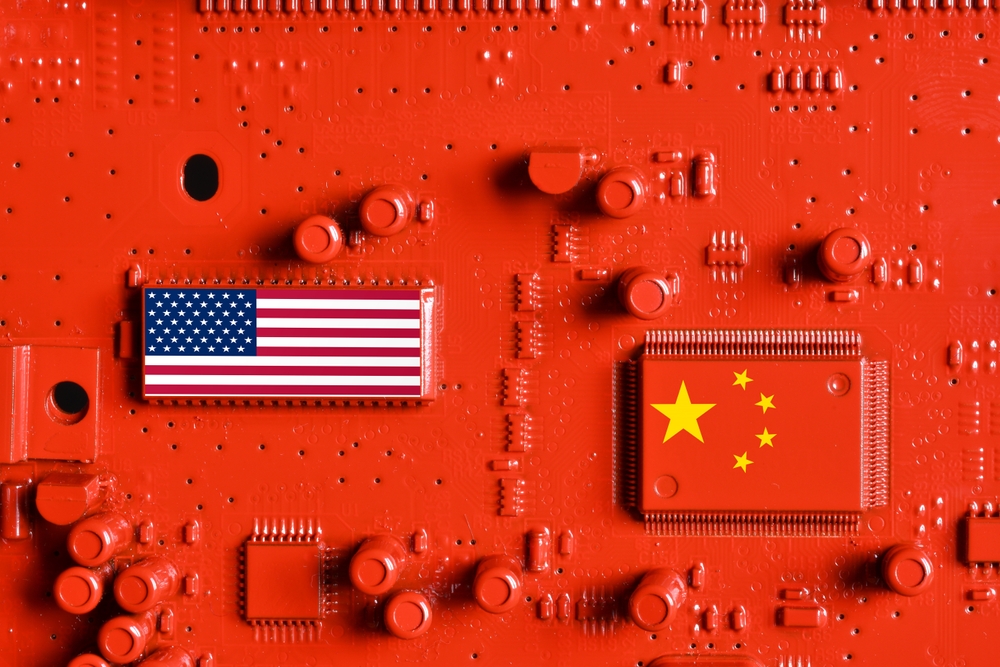
The Biden administration is exploring the possibility of implementing territorial restrictions on the export of advanced artificial intelligence (AI) chips, particularly those produced by leading U.S. companies such as Nvidia Corp. The potential policy aims to control the distribution of these cutting-edge technologies, which are seen as critical assets in the global AI race.
Strategic Export Licensing Under Consideration
According to sources familiar with the discussions, the plan involves issuing export licenses on a territorial basis, allowing the U.S. to direct where these AI chips can be sold. The initiative is still in the early stages but has gained traction in recent weeks as officials seek to address concerns over the international flow of AI technology. The proposal targets regions such as Britain and Saudi Arabia as hubs for distributing these chips, while also allowing major enterprises to finance local operations. The plan aims to prevent U.S. technology from being diverted to adversarial nations, specifically China.
Focus on Controlling Technology Flow
The administration’s efforts appear to be part of a broader strategy to curb China’s AI ambitions. By setting up territorial controls, the U.S. hopes to limit China’s access to advanced AI chips, which are crucial for developing sophisticated machine learning and artificial intelligence systems. Officials believe that managing the distribution of these technologies is essential to maintaining national security and upholding competitive advantages in the tech sector.
Impact on U.S. Chip Manufacturers
Shares of Nvidia, a major player in the AI chip market, fell by 4.2% on Tuesday, following reports of the proposed export controls. The company, along with Advanced Micro Devices Inc. (AMD) and Intel Corp., would be directly impacted by these potential regulations. While representatives from these firms have refrained from commenting, they are likely to closely monitor how this policy unfolds, as it could significantly affect their global sales and partnerships.
Balancing Innovation and Security
A spokesperson from the White House National Security Council emphasized the importance of balancing innovation with security. “Artificial intelligence has the potential to revolutionize health and other critical sectors, but there are also significant risks and challenges associated with this technology. We must take necessary security measures to mitigate those risks,” the spokesperson said. The policy discussions are also a response to broader concerns over how AI technology could be used in ways that threaten U.S. interests, particularly by foreign powers.
Diplomatic Leverage Through AI Chip Exports
The potential territorial restrictions on AI chip exports reflect a shift in U.S. strategy to use technology as a diplomatic tool. By controlling where and how these chips can be sold, the U.S. could leverage its technological superiority to build stronger alliances while limiting the reach of competitors. The administration’s current approach to export licenses is seen as a way to exert influence over global technology trends and safeguard critical innovations.
Future Implications
If implemented, this policy could set a precedent for how the U.S. manages the export of other critical technologies in the future. However, it also raises questions about potential backlash from countries that may see these restrictions as a form of economic control. The final decision on whether to impose these export limits will likely be influenced by ongoing diplomatic negotiations and assessments of national security risks.

 Get in Touch
Get in Touch 


